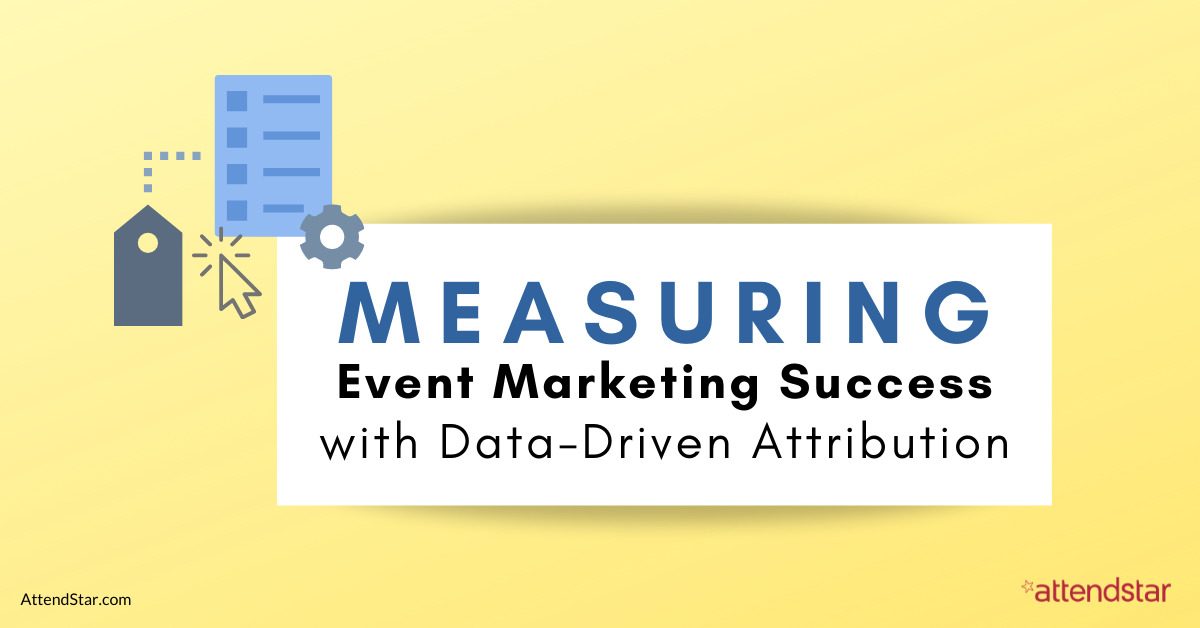On January 26, 2022, Google will upgrade all Google Analytics 4 properties to cross-channel data-driven attribution. What does that mean and how will it affect event marketers’ abilities to track the success of their digital ad investments? Don’t worry. It’s actually simpler than it sounds.
What is Data-Driven Attribution?
At the most basic level, data-driven attribution is an attribution model that tells you which of your marketing investments across various channels are driving the highest returns on investment (ROI).
But that’s not all. Data-driven attribution is built on an algorithm that leverages machine learning rather than pre-defined rules to create a custom attribution model for your brand based on the actual journeys of your customers.
As a result, data-driven attribution gives you a more accurate and comprehensive picture of your marketing programs so you can sell the most event tickets for the lowest budget investment. You can see exactly which touchpoints across the consumer journey drive results so you can make the best decisions and investments.
How Does Data-Driven Attribution Affect Google Analytics?
In a help article published on January 12, 2022, Google team members explained that Google Analytics 4 offered a set of attribution models in the past that used fixed rules to assign credit for a specific conversion across multiple advertising touchpoints. However, that will change on January 26, 2022 when Google fully launches cross-channel data-driven attribution to all Google Analytics 4 users.
As Google explains, “The data-driven model incorporates factors such as time from conversion, device type, number of ad interactions, the order of ad exposure, and the type of creative assets. Using a counterfactual approach, the model contrasts what happened with what could have occurred to determine which touchpoints are most likely to drive conversions. The model attributes conversion credit to these touchpoints based on this likelihood.”
The move to data-driven attribution is expected to benefit marketing performance since marketers will be able to use the detailed Conversion Paths and Model Comparison reports in Google Analytics 4 to see how credit is allocated along the buyer journey to each of their marketing channels or specific campaigns.
How Event Marketers Can Use Data-Driven Attribution
With data-driven attribution, marketers can more accurately and confidently answer critical questions, such as:
- Are each of my marketing channels performing successfully?
- Which marketing channels are driving the most sales?
- Which marketing channels are driving the highest value customers?
- How can I optimize my marketing investments to get better results overall?
In fact, research has proven that data-driven attribution helps marketers get better results. In its white paper, The Definitive Guide to Data-Driven Attribution, Google reported that marketers who use data-driven attribution see a 10–20% increase in optimization within marketing channels (including pay-per-click, affiliate, email, and social), a 20–40% increase in performance across channels, and a 25-50% increase in overall marketing investment performance.
How AttendStar Works with Data-Driven Attribution
Google Analytics 4 will upgrade all users’ properties to the data-driven attribution model soon, but you don’t have to worry about how that will affect the ads and marketing investments you’ve integrated with the AttendStar ticketing platform – or plan to integrate in the future.
Rest-assured, the AttendStar team is watching your data, and the transition will be seamless to you when it comes to tracking results from and with AttendStar. In fact, we view the shift to data-driven attribution as a positive move because it will give marketers better insights into the performance of specific marketing investments.
With that said, you can customize your attribution settings in Google Analytics 4 if you’d like to do so. Follow the link to learn how to update attribution settings in your Google Analytics account.


